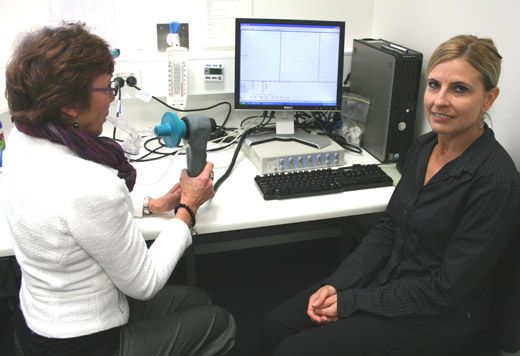
A drug that is widely used to treat pain and epilepsy can substantially reduce the severity of long-term chronic coughing, according to a new study conducted by University of Newcastle researchers.

A drug that is widely used to treat pain and epilepsy can substantially reduce the severity of long-term chronic coughing, according to a new study conducted by University of Newcastle researchers.
The findings, published today in the prestigious international journal The Lancet, are the first to show that the drug Gabapentin suppresses a nerve-related trigger responsible for stimulating persistent coughing.
“The results are very promising and raise hope for many people with refractory chronic cough,” lead researcher Dr Nicole Ryan* said.
“The condition can be both psychologically and physically disabling, and there have been no effective drugs available. Sufferers now have a potential new treatment option.”
Chronic cough is an increasing clinical problem impacting up to 16 per cent of the world’s population, and 20 to 40 per cent of these have a refractory cough that doesn’t respond to usual medical treatment.
While the precise cause is not known, researchers believe it relates to sensitisation in the central nervous system – sufferers can experience acute sensitivity to cold air, odours and talking.
“Gabapentin has shown a robust effect on chronic neuropathic pain and as such could have a similar effect in people with chronic cough, but until now no randomised studies have been done,” Dr Ryan said.
In this study, 62 patients with refractory chronic cough (one lasting eight weeks) were assigned to either Gabapentin or a placebo for 10 weeks. Three-quarters of those in the Gabapentin group reported a sustained improvement in cough severity, cough frequency and quality of life, compared with less than half of the placebo group.
Dr Ryan said the drug’s efficacy was not sustained after treatment was stopped.
“Gabapentin is effective, well tolerated, and has few drug interactions and therefore its addition to chronic cough standard practice guidelines should be considered, although replication studies are necessary before this happens,” she added.
Chief Investigator on the study was Professor Peter Gibson from the University of Newcastle. Co-author was Dr Surinder Birring, King’s College London.
Dr Ryan, a member of HMRI’s VIVA (Viruses, Infections/Immunity, Vaccines & Asthma) research program, won a 2011 Pulse travel prize to present her findings at the recent 2012 International Cough Conference in London. Her research has been supported through HMRI by the Greaves Family. HMRI is a partnership between the University of Newcastle, Hunter New England Health and the community.
MEDIA CONTACT: Mark Rothfield| 4042 0590 or 0487 617 055
HMRI would like to acknowledge the Traditional Custodians of the land on which we work and live, the Awabakal and Worimi peoples, and pay our respects to Elders past and present. We recognise and respect their cultural heritage and beliefs and their continued connection to their land.
Hunter Medical Research Institute
We’re taking healthy further.
Locked Bag 1000
New Lambton
NSW, Australia, 2305


This site is protected by reCAPTCHA and the Google Privacy Policy and Terms of Service apply.
Copyright © 2024 Hunter Medical Research Institute | ABN: 27 081 436 919
Site by Marlin Communications
